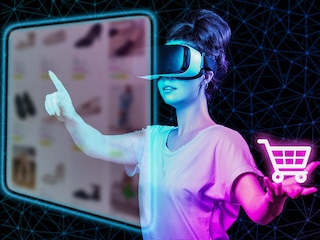How AI can be a tool to increase customer loyalty
Leverage artificial intelligence to improve your relationship with customers and compete with big data.


Even four years out from the first lockdowns, post-pandemic consumer confidence has failed to completely rebound. International conflicts, the energy crisis and inflation have all played a role.
While not all consumers have stopped buying, many continue cutting back. IESE’s José Luis Nueno, who holds the Intent HQ Chair on Changing Consumer Behavior, and Alfonso Urien, director of the center of data insights at Intent HQ, came together to discuss who these consumers are, why they’ve stopped buying, and how AI can be used to help win them back.
While large brands easily obtain first-party data, giving them a structural advantage, smaller digital-native companies also generate opportunities to target consumers and gather relevant information. Both are fighting to cut out the middleman. Currently, 42% of Nike sales are direct, and the company aims to reach 50% by 2025.
A well-designed loyalty program should offer unique and differentiated loyalty strategies, says Nueno, adding that some 60% of hospitality and leisure companies still offer practically identical proposals. Additionally, many loyalty-building actions fail down the road, due to a lack of follow-up.
Additionally, AI can play a decisive role in consolidating loyalty programs. According to the consulting firm Bernstein, the 10 key AI-driven applications in the retail sector are:
How to identify these two groups? With AI able to process large amounts of data, AI can not only identify consumption patterns and predict which consumers are most valuable for a loyalty program, but also determine the ideal location for a retail store, where proximity is key.
Digital interaction will become the norm in stores, from luxury to food. After overcoming COVID-19 restrictions, traditional grocery stores are likely to regain their dominance, but now loaded with digital means to interact with the consumer inside the store, Nueno predicts.
One such technology is Scan&Go, which sends direct messages and advertising to users in stores, enhancing the shopping experience. Another is digital coupons, similar to brochures but with the ability to track conversion with a high level of accuracy.
Retailers are increasingly aware of the importance of retail media, although many, especially medium-sized ones, have limited resources or audience volume. In 2022, 88% of retailers considered private labels — a product manufactured by one company and sold under another company’s brand name — as an effective tool for creating loyalty, and 40.8% of consumers expressed a desire to increase their consumption of private-label products in the next year. Additionally, over 60% of millennials equate the quality of private labels with that of the manufacturer.
For luxury brands, those with a loyal customer cohort and a narrow offering in high-barrier categories experience the best growth, as is the case with Louis Vuitton (LVMH) and Hermà¨s, brands that only sell directly to consumers in their own stores or websites.
Ultimately, brands should take advantage of the new opportunities offered by AI, from aligning marketing and sales resources to designing loyalty programs. All without forgetting the human touch.
First Published: Oct 22, 2024, 16:16
Subscribe Now